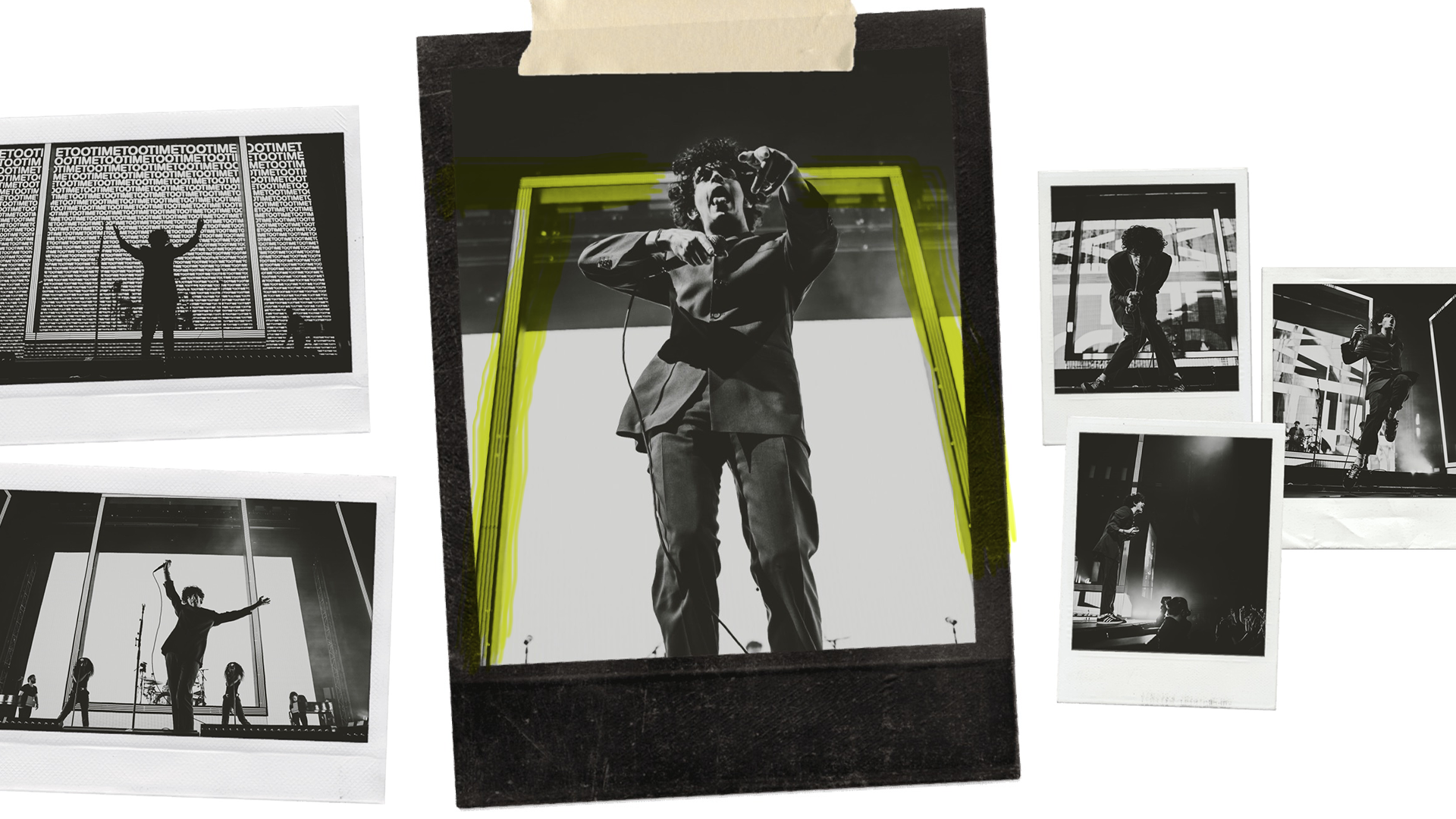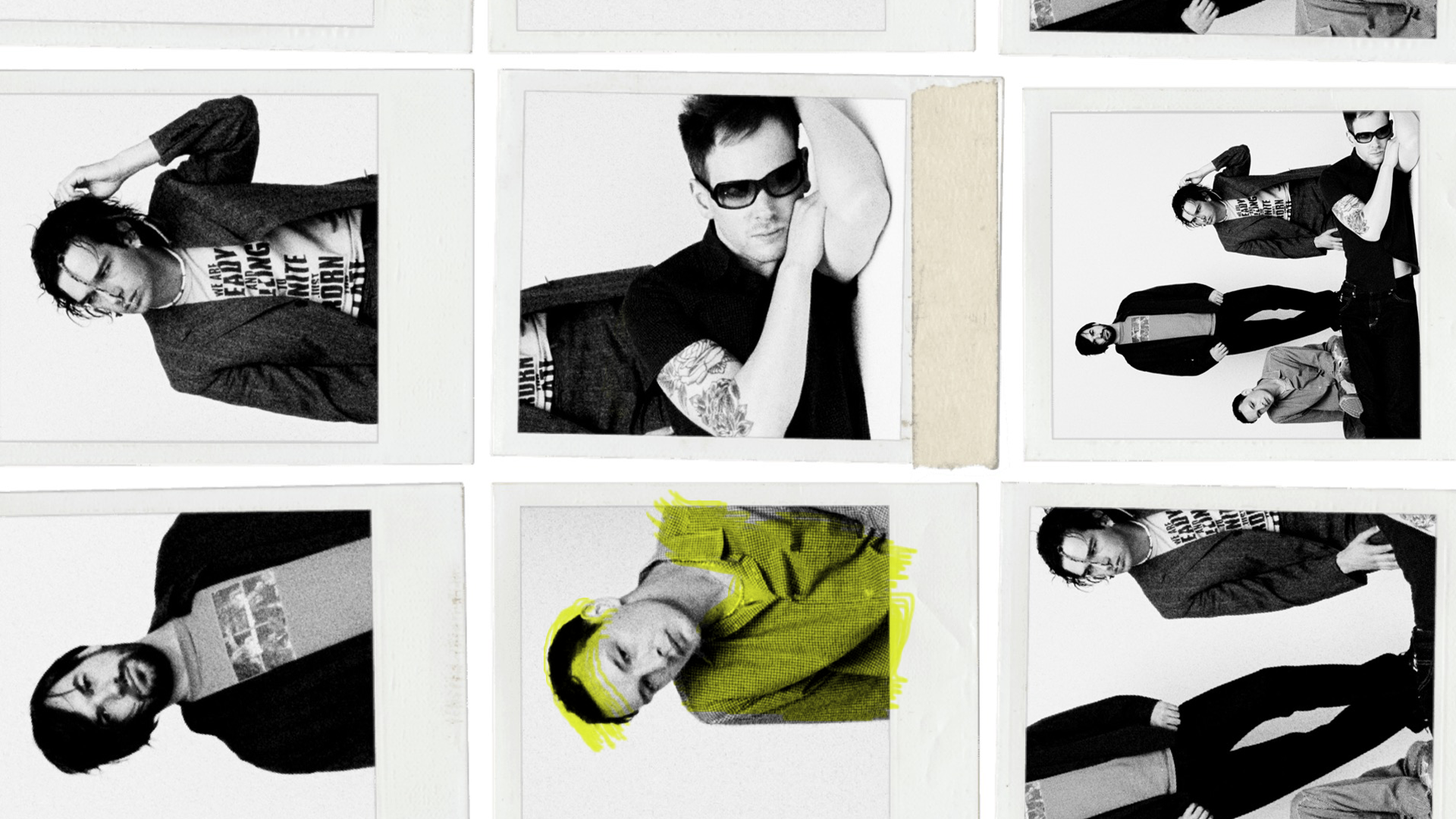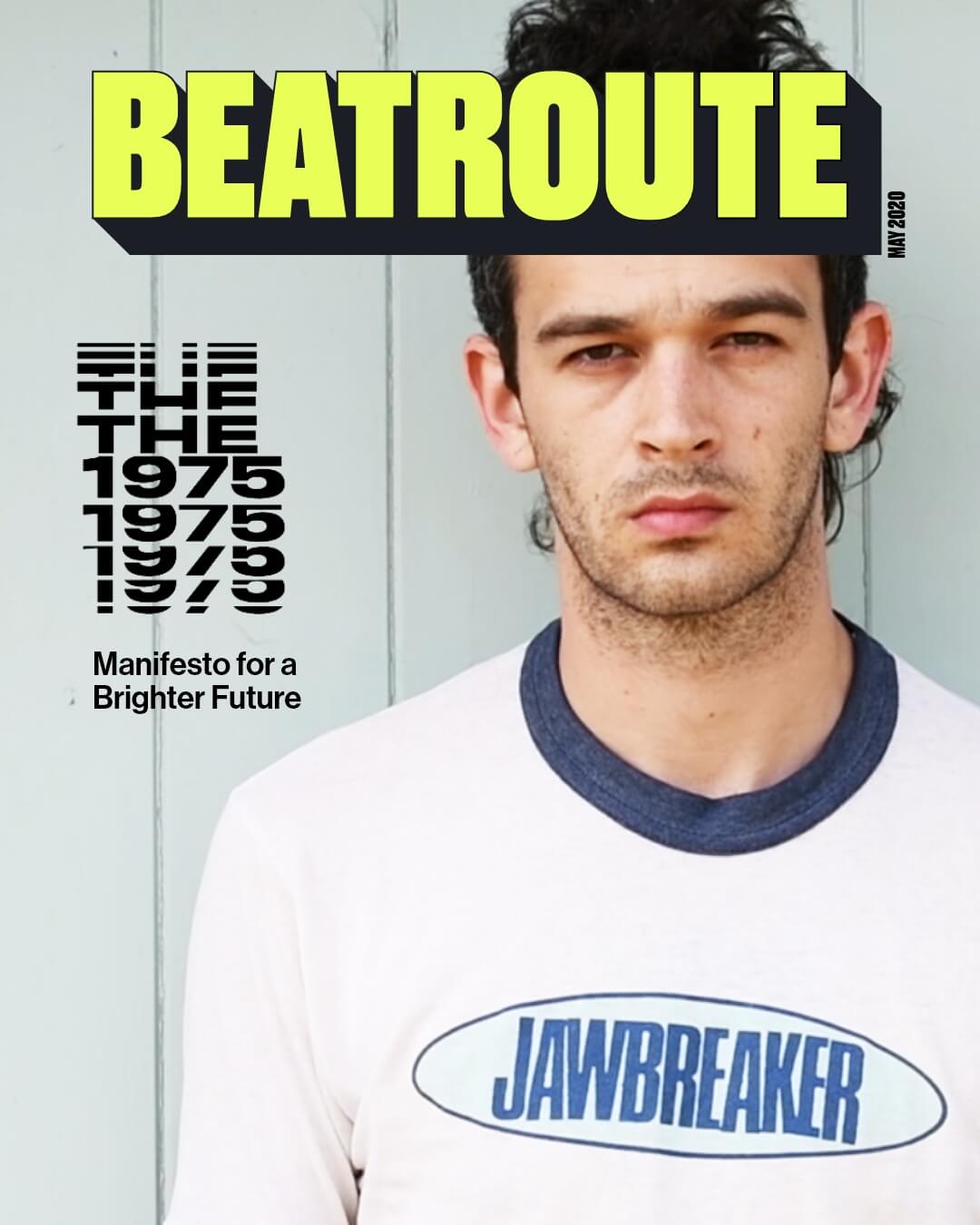COVER
The 1975's
Manifesto for a Brighter Future
By Glenn Alderson
Publishing date: May 04, 2020
W
When Matty Healy answers the phone, he’s driving through the rainy English countryside, somewhere between Oxfordshire and Northamptonshire past these “big fucking windmill things,” not too far from the studio compound where The 1975 frontman and his bandmates spent the last year working on their latest album—the soon-to-be-released Notes On A Conditional Form.
“I’m driving to just get out of the house,” he says through his speakerphone in a thick English accent.
Healy is behind the wheel of a silver Audi E-Tron. It’s no Larry David Prius but a modest car choice nonetheless: electric, eco-friendly—definitely responsible. Just the type of vehicle you’d expect from someone who has made a deliberate choice to feature a monologue by teen activist Greta Thunberg in the opening track of his new album.
“It’s not a cool car,” he says. “I mean, I do have two cool cars but I try not to drive them very much because they’re old and I don’t want to be part of the problem. I’m hyper-aware of all that shit now. I don’t want to be a champagne socialist. I kinda can’t help it to a certain extent though, so I always try and check myself.”
When Matty Healy answers the phone, he’s driving through the rainy English countryside, somewhere between Oxfordshire and Northamptonshire past these “big fucking windmill things,” not too far from the studio compound where The 1975 frontman and his bandmates spent the last year working on their latest album—the soon-to-be-released Notes On A Conditional Form.
“I’m driving to just get out of the house,” he says through his speakerphone in a thick English accent.
Healy is behind the wheel of a silver Audi E-Tron. It’s no Larry David Prius but a modest car choice nonetheless: electric, eco-friendly—definitely responsible. Just the type of vehicle you’d expect from someone who has made a deliberate choice to feature a monologue by teen activist Greta Thunberg in the opening track of his new album.
“It’s not a cool car,” he says. “I mean, I do have two cool cars but I try not to drive them very much because they’re old and I don’t want to be part of the problem. I’m hyper-aware of all that shit now. I don’t want to be a champagne socialist. I kinda can’t help it to a certain extent though, so I always try and check myself.”
I don't want to be a champagne socialist.
I don't want to be a champagne socialist.
Healy is a lot of things: clever, obsessive—some would even call him dreamy—but one thing that truly defines the charismatic and outspoken personality is his self-awareness. Sensitive to the current state of affairs, especially when it comes to climate change, he carries the weight of the world in his lyrics, channeling our collective anxieties and emotional baggage in a way that is strangely therapeutic.
“I used to drive a lot actually,” Healy continues. “I used to be a delivery boy for this Chinese food restaurant and I would go out and write music to CDs that I found and put in the car.”
While Healy has undoubtedly come a long way from his delivery days, he certainly hasn’t forgotten where he came from. You can hear his early influences shining through loud and clear on the new album; everything from underground punk rock to experimental and textural dance music like Four Tet and Burial.
In a recent interview he did with Zane Lowe on Beats 1, Healy was vocal about his appreciation for early emo-hardcore bands of the late 90s and early 2000s; raw, lo-fi, and emotive groups like Mohinder, Indian Summer, and Moss Icon. Bands that, for the most part, have become forgotten relics of a mutated genre.
Healy’s emo-hardcore underbelly is exposed on The 1975’s recent single, “People,” where he emphatically shouts and demands that we all “wake up” to the realities of a crumbling republic “gone bananas.” The song is loud and powerful, even a little bit punk, with its political posturing drawing influence from Swedish post-hardcore icons, Refused.

There's not going to be people in 1000 years finding a tweet about Greta Thunberg. You know what I mean? They’re not going to find a tweet amongst the rubble."
“Refused were one of the most important band’s in my life when I was younger. To make heavy music and have that angular, whimsical element that is still kinda groovy is very much up there in our vocabulary and things that we can draw from.
“I don’t always have a complete idea what The 1975 is, but it makes sense for me to talk about those influences because that’s part of my DNA,” Healy says. “When you’re making music from the heart, you’re not thinking about it that much, it’s more about what you’ve got in the tank.”
Make no mistake, while Notes On A Conditional Form might carry an early emo or punk rock spirit underneath its surface, it’s still very much a modern pop album, constructed in such a way that it breathes a relatable uniqueness, making it listenable and radio-friendly. An accessibility that has afforded the band their massive international fanbase which, up until this pandemic began, saw them selling out stadiums from Indiana to Istanbul.
Even though it was written pre-pandemic, NOACF couldn’t be more relevant and powerful with its messages of immediacy and calls for action in a world that, according to Healy, is falling apart from the inside out.

“I feel that it’s quite prophetic in the way that it’s leaning towards this moment. I’m very proud to be putting out a record that features Greta so that in 10 years we can look back at this pandemic or whatever comes of it and know that this came out then,” he says. “The question I’m asking on this record is the same question I’m asking on the last album, but that was more about the internet and communication. This is the broader proposition of me saying, ‘surely the centre cannot hold, right?’ This is getting crazy now.
On the band’s previous album, A Brief Inquiry Into Online Relationships (2018), Healy was critiquing our various forms of digital communication while asking for a solution and searching for connections beyond the screen, whereas on NOACF he’s suggesting that something has to give. “Maybe it does need to get worse before it gets better,” he laments. The question then is what do we do until the proverbial levee breaks?
By putting Greta Thunberg front and centre on the album’s opening track, Healy and his bandmates are not only acknowledging their place in the fight against climate change, but they’re also reconciling their place of privilege in a male-dominated music industry, using their pop-culture powers for good in trying to normalize the dialogue about much needed social change. “I wanted Greta’s voice to have a formal place in pop culture. There are a million tweets and online endorsements but they’re quite transient. A song that lives forever, etched on to a record, that’s not transient. There’s not going to be people in 1000 years finding a tweet about Greta Thunberg. You know what I mean? They’re not going to find a tweet amongst the rubble.”
While we’re all patiently waiting for a vaccine or for the centre to fall out—whichever comes first—Healey is using his downtime to keep working on creating music and trying to stay positive while wagering what our new normal might look like.“ We don’t even know. It’s going to be a fucking whole new world. Because by the time we go back to what we considered normal, this will be normal. It’s going to be a whole traffic jam of adapting for the next five years,” he says. “I’m lucky that I’m able to keep doing what I do. I mean, I can’t do shows but I can make music and that is a real position of privilege to be in right now, so I’m just trying to not take that for granted.”
Notes on a Conditional Form is available now through Dirty Hit and Polydor Records.
Concert photography by Lindsey Blane.

